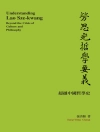In ‘The Natural State’ by U. G. Krishnamurti, the reader is taken on a philosophical journey exploring the concept of self-realization and the natural state of being. Krishnamurti’s writing style is characterized by its straightforwardness and blunt honesty, challenging conventional ideas and beliefs about human existence. The book delves into the nature of consciousness and the illusion of the self, drawing from Eastern philosophies and Krishnamurti’s own experiences. ‘The Natural State’ stands out for its unconventional approach to spiritual enlightenment and its rejection of traditional spiritual practices. It is a thought-provoking read that forces readers to question their assumptions about identity and reality. U. G. Krishnamurti, known for his controversial and radical teachings, was a spiritual teacher who rejected the notion of gurus and spiritual authority. His personal struggles and disillusionment with spiritual practices led him to develop his unique philosophy centered around the idea of the natural state of being. Krishnamurti’s background in education and his interactions with various spiritual traditions influenced his writing and teachings in ‘The Natural State.’ I highly recommend ‘The Natural State’ to readers interested in exploring unconventional spiritual teachings and questioning the nature of reality. Krishnamurti’s bold and uncompromising approach challenges readers to reexamine their beliefs and consider alternative perspectives on self-realization and enlightenment.
About the author
Uppaluri Gopala Krishnamurti, commonly known as U.G. Krishnamurti, was a thinker and philosopher who explored the existential questions of life, questioning the very foundation of thought and the nature of enlightenment. Seemingly paradoxical, he has often been described not as a traditional guru but as an ‘anti-guru’, skeptical of the very systems of thought that underpin spiritual searching. Born on July 9, 1918, in Andhra Pradesh, India, and deceased on March 22, 2007, U.G. rejected the framework of conventional enlightenment and emphasized a state beyond the constructs of mind and society which he referred to as ‘the natural state’. His teachings were not delivered through a structured philosophy but through conversations and interactions with those around him. U.G. authored several books, including ‘The Natural State’, which presents his radical viewpoint that seeks to deflate the constructs of traditional spirituality and religious thought. His literary style is direct, often uncompromising, and devoid of the usual comforts of philosophical narrative. Rather than offering solutions, U.G. Krishnamurti’s writings pose questions that undercut established notions of consciousness and the self, thrusting readers into a space of existential contemplation.












